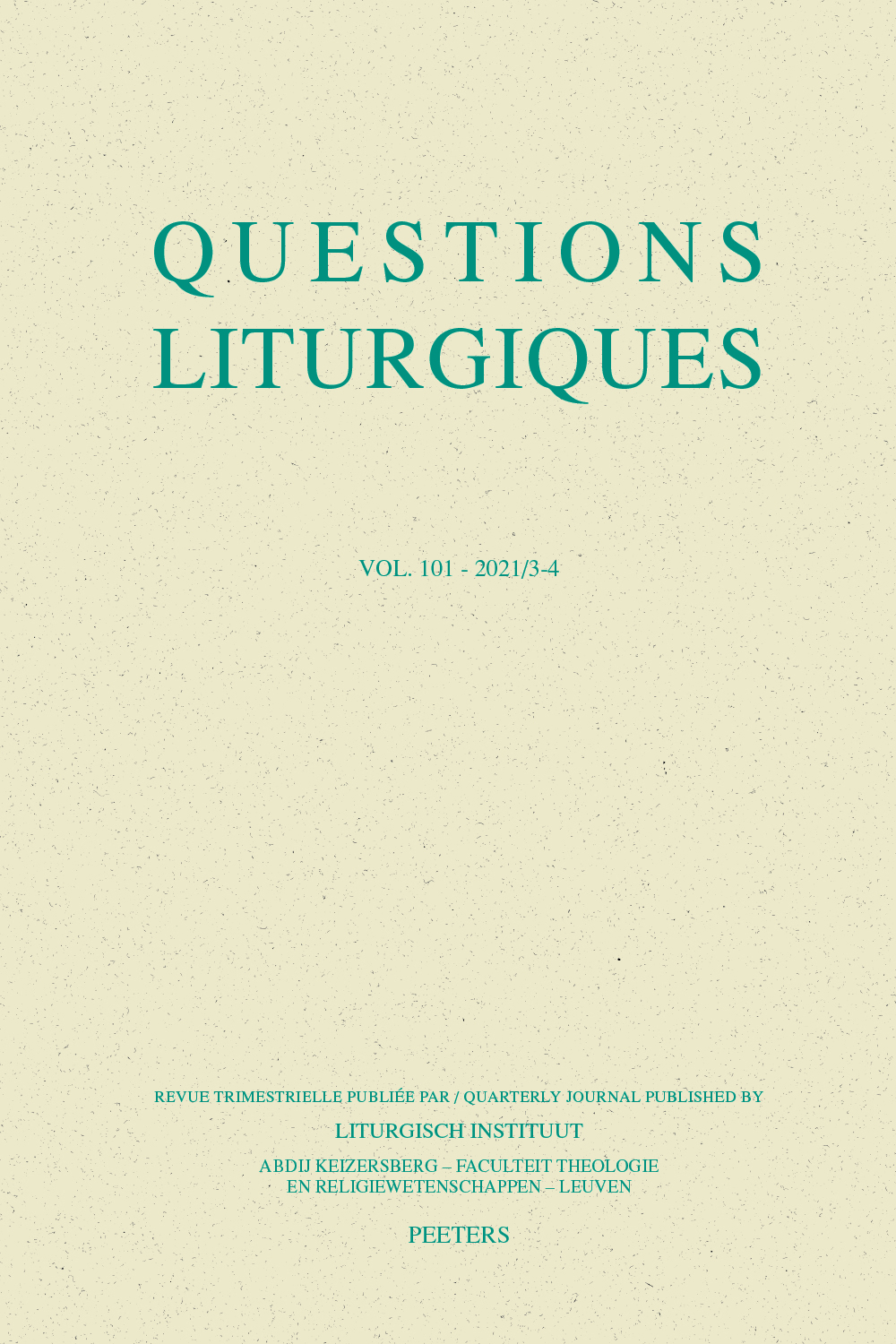 previous article in this issue previous article in this issue | next article in this issue  |

Preview first page |
Document Details : Title: Seeing a Reflection, Considering Appearances Subtitle: The History, Theology and Literary Composition of the Missale Romanum at a Time of Vernacular Reflection Author(s): McCARTHY, Daniel P. Journal: Questions Liturgiques/Studies in Liturgy Volume: 94 Issue: 1-2 Date: 2013 Pages: 109-143 DOI: 10.2143/QL.94.1.2983443 Abstract : Much attention has been given to the new English translation of the Missale Romanum. Because the English is closer to the Latin text than the former translation, it reveals the qualities of the Latin in new ways. Just because the vernacular edition directly represents the Latin, does not mean that the resulting prayer is worthwhile, because the Latin may be faulty, which is implied whenever the new vernacular edition deviates significantly from the Latin. When the vernacular sticks close to the Latin, the burden of meaning shifts to the quality of the Latin text, which must be composed clearly and accurately so that it may be readily rendered into so many vernacular editions for the direct pastoral care of all who celebrate the liturgy. This article considers the historical composition of the current Missale Romanum, derives from its prayers a theological reflection and considers the quality of its Latin expression in the hope of improving its subsequent vernacular linguistic impression. Beaucoup d’attention a été accordée à la nouvelle traduction anglaise du Missale Romanum. Comme l’anglais s’y veut plus proche du latin que dans la première traduction, il fait apparaître les qualités du latin d’une nouvelle manière. Précisément parce que la nouvelle édition vernaculaire veut reproduire fidèlement le latin, cela ne signifie nullement que la prière est exprimée d’une manière plus parfaite dans sa terminologie parce que le latin peut être défectueux, ce qui a alors pour conséquence que la nouvelle édition vernaculaire peut dévier grandement du latin. Quand les termes vernaculaires serrent de plus près le latin, le poids de la signification est transféré aux qualités du latin qui se veut composé d’une manière claire et exacte, de manière à être proposé aisément dans nombre d’éditions vernaculaires au profit du souci pastoral immédiat de tous ceux qui célèbrent la liturgie. Cet article considère dans son ensemble la composition historique du Missale Romanum courant, propose à partir de ses prières une réflexion théologique et souligne la qualité de l’expression latine dans l’espoir de voir perfectionner une composition linguistique vernaculaire future du Missel. |
|


